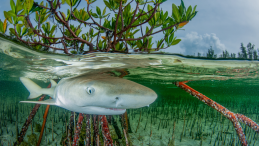The electrification of transport has a significant potential reduce the sector’s carbon footprint, and to combat air pollution in densely populated cities through locally emission-free vehicles. However, under a Resource Nexus perspective, it is also important to consider the raw material needs and environmental footprint of producing electric vehicles (EVs) and their batteries, and the environmental challenges that arise when they reach end-of-life (EOL).
The NABATE project conducted an analyis of current and near future trends regarding EOL EV batteries in Germany. This included on the one hand the assessment of predicted waste streams (with continuous and significant increases expected over the next 15 to 20 years), but also of solution strategies. This included an analysis of the regulatory framework, including the new EU Battery Regulation and current German Battery Act, but also other national and EU-level guidelines and regulations for (hazardous) waste management, sustainable supply chains and the circular economy. At the same time, the rapidly developing battery reuse and recycling sector were assessed, addressing both enabling factors (regulations on circular use of waste materials, raw materials security) and barriers (volatile world market prices, increasing public concerns about battery recycling).
The findings from Germany were presented to Korea Environment Corporation (K-eco) through monthly briefings, a project report (to be released to the public at a later stage), a workshop bringing together experts from K-Eco with stakeholders of the German Federal Environment Agency and innovative local companies working on battery repurposing/reuse and recycling, and presentations to senior experts at K-eco and students of Korean universities enrolled in the Global Environmental Leaders Progamme (GELP) Academy jointly implemented by K-eco and Sungkyunkwan University, Seoul, South Korea.
This project was funded by K-Eco (Korea Environment Corporation).




